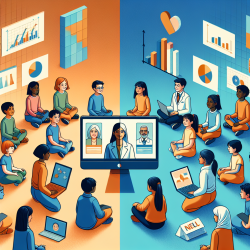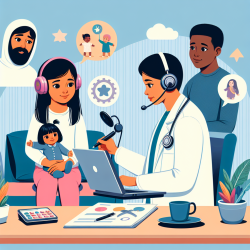Introduction
In the realm of speech-language pathology, practitioners are continually seeking data-driven approaches to enhance the health and well-being of children. A recent study titled The harmful effects of partisan polarization on health provides insights that can be applied to improve outcomes in educational settings, particularly in schools where online therapy services, such as those provided by TinyEYE, are implemented.
Understanding the Research
The study, conducted by researchers at Northeastern University, highlights how political polarization can significantly impact physical and mental health. By analyzing data from 2,752 U.S. residents, the study found that individuals who perceive a greater political divide in their communities report more days of poor health. This research underscores the broader implications of political environments on personal well-being.
Implications for Practitioners
For speech-language pathologists and other health professionals working with children, understanding the effects of political polarization is crucial. Here are several ways practitioners can apply these findings:
- Create Inclusive Environments: Foster an environment that encourages open dialogue and inclusivity. Reducing perceived polarization can mitigate stress and anxiety, which are detrimental to children's health and learning.
- Promote Social Skills: Implement programs that teach children effective communication and conflict resolution skills. These skills can help children navigate diverse political and social environments more effectively.
- Engage in Community Outreach: Collaborate with community leaders to promote unity and understanding across political divides. Community cohesion can enhance the support systems available to children.
- Encourage Further Research: Practitioners should engage in or support research that explores the specific impacts of political polarization on children's health and educational outcomes. This can lead to more tailored interventions.
Encouraging Further Research
The study encourages further investigation into the broader consequences of political polarization. For practitioners, this means staying informed about ongoing research and adapting practices based on new findings. Engaging with academic literature and participating in professional development opportunities can enhance practitioners' ability to support children's health effectively.
Conclusion
Political polarization is more than a societal issue; it is a public health concern that affects individuals' well-being, including children in educational settings. By understanding and addressing the implications of this research, speech-language pathologists can contribute to healthier, more supportive environments for children. To delve deeper into the original research, please follow this link: The harmful effects of partisan polarization on health.










